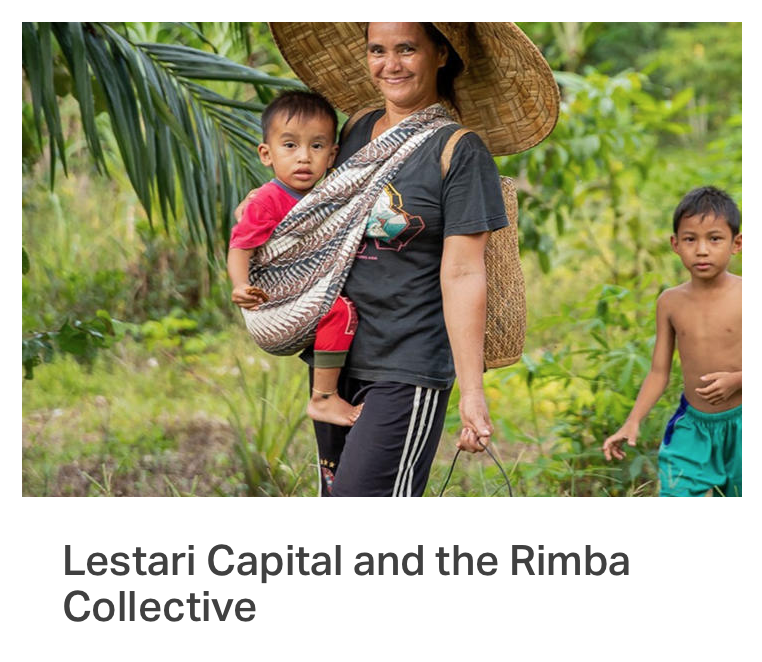Financial institutions are increasingly aware of the need for healthy and sustainable food systems. But the complexity of these global systems means that private capital is struggling to fund transformation at the scale and speed needed to achieve equity, climate, nature, and nutrition goals. How can financial institutions overcome this challenge to ensure their capital is truly transformative?
The World Business Council for Sustainable Development, as a founding partner of the Good Food Finance Network and Secretariat for the Forest Investor Club, has developed a set of case studies showcasing innovative investment strategies that are directing private capital toward sustainable food systems, forests, and nature. The five case studies– ranging from sustainable cocoa farming in Central America to zero-deforestation palm oil in Southeast Asia – show how the right investment strategies can transform the financing of food systems for a healthy, sustainable future.
The power of partnerships
Our clearest takeaways from developing the five case studies are the importance of multistakeholder partnerships and the need for more effective and innovative collaboration across public and private organizations. These partnerships bring together a broad range of investors – including corporates, private sector investors, philanthropic foundations, and development finance institutions – to design new and effective ways of raising investment capital and funding technical assistance while meeting sustainability targets and satisfying the risk-return needs of all partners.
Initiatives such as the Good Food Finance Network and the Forest Investor Club (a network of public and private financial institutions and investors accelerating investments in forests and nature-based solutions) can play a vital role in helping set up strategic multistakeholder partnerships. As well as connecting investors with varying risk-return needs, these investment partnerships bring together different kinds of expertise from across food, forests, and finance.
Establishing effective partnerships requires not only technical knowledge of land-use systems and finance, but the ability to forge personal connections and build deep relationships over extended periods of time – skills that are often overlooked in partnership building. Investment partnerships also need to engage on-the-ground partners, such as local governments, indigenous groups, and farmer organizations, to ensure that the projects they are financing are effectively implemented and beneficial for the local community. The Livelihoods Funds, for example, have assembled a diverse coalition of corporate and financial investors, NGOs and local communities to promote sustainable agricultural practices in Africa, Asia, and Latin America.
Catalytic capital
The case studies also reveal the difficulty of securing private investment in the food and land-use sectors, which remains a challenge even for experienced and trusted asset managers. This private-sector reticence can be attributed to a variety of factors, from insufficient data on potential returns to high transaction costs in emerging markets. Sector-specific risks, such as the food and land-use sector’s high dependence on the weather, can also put off investors.
The initiatives profiled in the case studies stress the need for more catalytic capital to de-risk investments and allay these concerns. For example, the African Forestry Impact Platform, a collaboration between New Forests and three development finance institution investment partners, supports sustainable forestry in sub-Saharan Africa. New Forests are currently exploring partnerships with private sector partners that can invest further catalytic capital, acceptingreduced financial expectations in order to bring about a greater social or environmental impact, to overcome investment barriers in the industry. However, the case studies also emphasize the difficulty of finding and securing catalytic capital for food system and land-use transformation.
Given the importance of the sector for meeting global goals and for feeding the world’s growing population, it is essential that public, philanthropic, and private-sector investors work together to develop innovative solutions to this challenge. Corporates, which are increasingly looking to make investments that strengthen the resilience of their own supply chains and achieve social and environmental returns, have a critical role to play here, both in providing finance and in sharing the expertise needed for sound investment in the sector.
Optimistic outlook
Despite these challenges, we are optimistic about the future of investment in sustainable food systems, forests, and nature. There are a growing number of organizations interested in designing new business models, adopting innovative technologies, or – as is increasingly the case for corporates – providing much-needed catalytic capital. Complementing this, numerous investment opportunities are opening up in the world’s emerging markets.
Innovative investment partnerships will be essential to make the most of these opportunities and transform the financing of sustainable food and land-use systems. Each of the five case studies offers valuable insights into how partnerships can increase investments, create value, and deliver real-world impacts. Taken together, they show a way forward for the financing of food and land-use systems that sustain health, protect forests and nature, and fuel economies around the world.
Explore the case studies here.
Authors: Victoria Crawford, Senior Manager, Investment Partnerships and Policy, WBCSD and Ryan Whisnant, Director, Land Use Finance, WBCSD.






